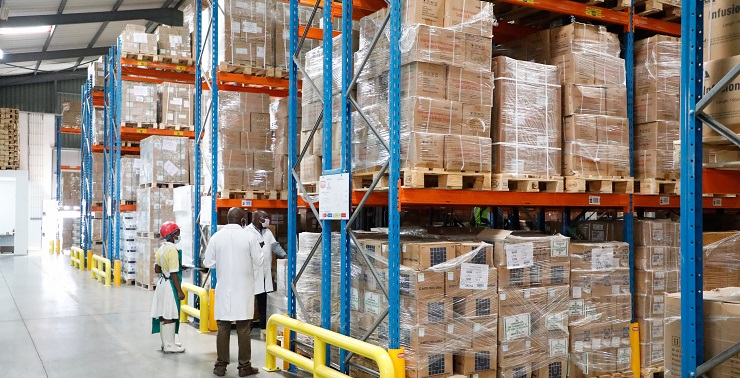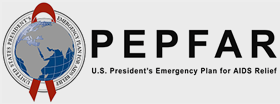
Since its appearance on the global and country stage earlier this year, COVID-19 has significantly impacted supply chains. In preparation and response, the USAID Global Health Supply Chain Program-Procurement Supply Management (GHSC-PSM) project continuously gathers information on this dynamic situation and works to mitigate any supply chain risks, while continuing to meet routine supply. The following are snapshots of how the project works to resolve issues in different countries while continuing routine activities.
Angola – When Angola implemented an inter-provincial travel ban in the face of the COVID-19 pandemic, GHSC-PSM routinely delivering health commodities to the provincial level was no longer an option, making disruptions to health commodity access an imminent possibility. By delivering health commodities to a municipal level directly from Luanda, the project’s revised country distribution model significantly reduced the product delivery lead time along with product damage, expiry and theft. COVID-19 related constraints encouraged local stakeholders to adopt a new solution circumnavigating the country’s inter-provincial travel ban and allowed health workers to access products quickly at their own municipal levels.
Burma – GHSC-PSM recently began scaling up mSupply, a nationwide electronic logistic management information system, by deploying it to all central, regional and township stores. However, because of COVD-19 and public health safety measures that were subsequently enacted, this plan was postponed, prompting the project to quickly roll-out a web-based data collection system known as KoboToolbox. This tool provides real-time logistics management information system data on COVID-19 commodities at Myanmar's township level. By utilizing a web-based data collection system that is easily accessible on mobile phones, tablets and computers, GHSC-PSM is now able to collect real-time stock level data for analysis. The key performance indicators that are tracked include the number of reported facilities, order fill rate and stock-out rates. Gradually, the project will be scaling up the mSupply inventory management software down to township level once restrictions with social distancing are lifted.
Ethiopia - GHSC-PSM collaborated with the Ministry of Health and Ethiopia's Pharmaceutical Supply Chain Agency to implement protocols for resource sharing among its hospitals during health emergencies. In order to scale this approach nationwide and effectively share medicines, supplies, medical equipment, space and health systems professionals, GHSC-PSM created a new resource sharing directive to integrate into the official government mandate set of protocols for health emergencies. The directive lays out the preconditions needed for federal hospitals to borrow, exchange or donate supplies and equipment while also addressing the difficulty faced by stakeholders in identifying medicines when there is no unique base code (national code to identify medicines). The key performance indicators tracked are stock availability data, wastage rate and resources shared among sites. In turn facilities and hospitals can easily collaborate following predetermined and streamlined steps outlined by the official directive.
Follow along to learn more about what GHSC-PSM is doing in other countries to mitigate supply chain issues due to COVID-19 and stay up to date on the latest GHSC-PSM COVID-19 reports.


